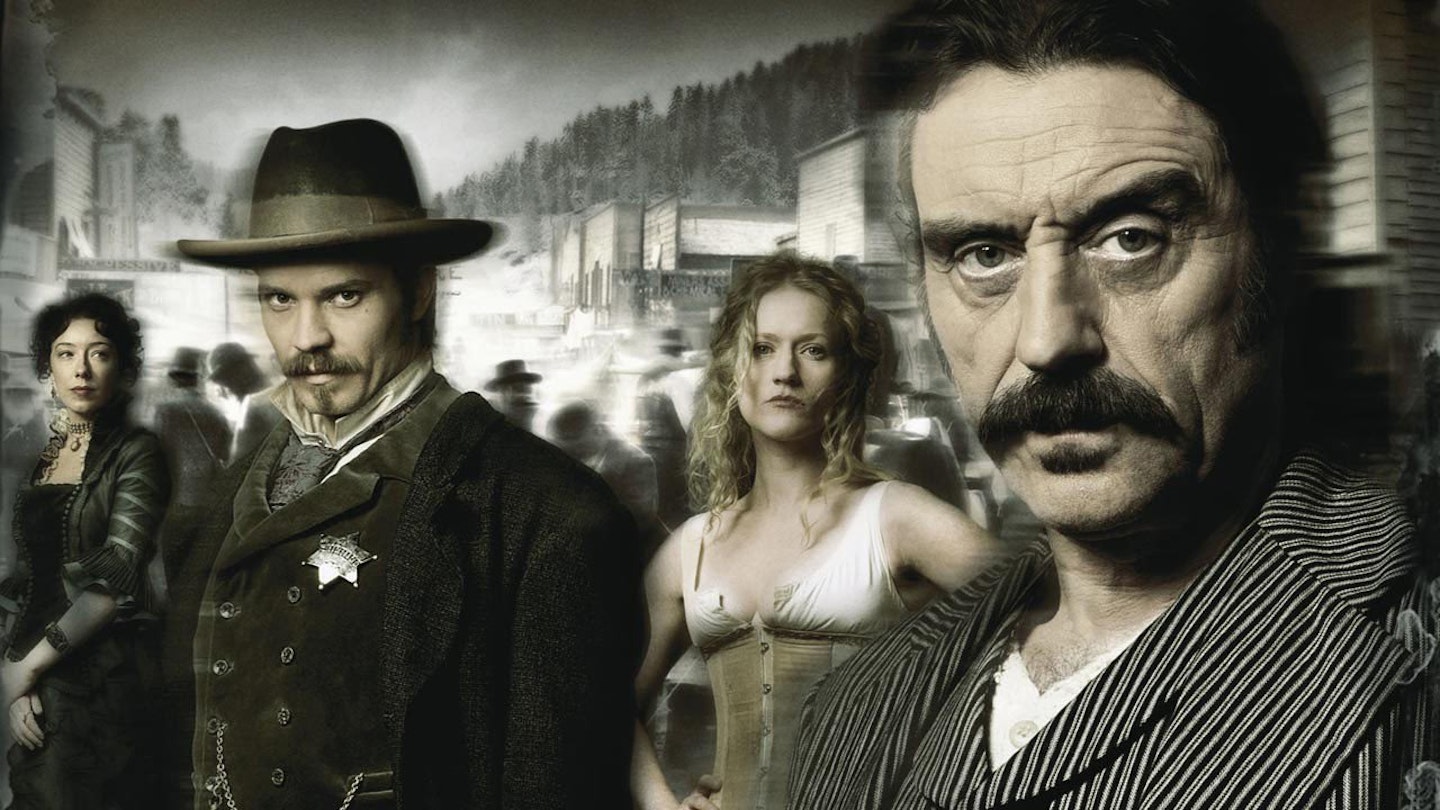Blood-letting on my premises - that I aint approved of? fulminates Al Swearengen in that singsong vulgarity to which Ian McShane has lent career-defining gusto. I take it as a fucking affront.
Never has profanity been worn so proudly as in Deadwood, the outstanding Western now in its third and final season - 2,980 fucks have been notched up since the programme made its dramatic debut in 2004, let alone the elaborate references to female anatomy. But as creator David Milch put it to his nervous production company, this show was designed not just to be faithful to historys surly demeanour but to express the humanness of his characters.
None more so than Swearengen, saloon keep and chief meddler, the Tony Soprano of Gold Rush Dakota, who despite his murderous conniving is the pieces true hero.
Milch is so determined to demythologise the heroic stanchions of the genre that the only way to judge moral parameters in Deadwood is to work out whos least evil. Swearengen, at least, is a man with a vision - civilisation whatever the cost. His methods may be barbarous - the series reaches something of an apotheosis in the lopping of fingers, pummelling of faces and one spectacular eye-gouging - but he remains the perspicacious force staving off chaos.
Milch defined his modus operandi as researching the history down to every muddied chap and roof tile, then tossing it all out of the nearest window to wallow in the street with the other drunks. Deadwood is a bizarre concoction - a fantasy more alive than reality ever could be.
At its sharpest edge the series cuts into satire. There is a sense now the stakes are higher. Individual episodes still pivot languorously around an insult or issue as they talk and talk, but the greater narrative moves with the crushing inevitability of a glacier. For the third go round the pig-pens and boudoirs (the difference often obscure), whores and reprobates are making way for politics, education, even culture.
Big business has arrived in the bullish shape of arch-capitalist George Hearst (Gerald McRaney) - father of William Randolph Hearst, the model for Citizen Kane - to muscle out the petty squabbles and low corruption of the saloon owners, pimps and scoundrels who make up the town elders. McRaneys barely restrained psychopath is the towering devilry of the new series, although such is the level of performance across the entire cast, that the very concept of actors playing roles seems moot.
Milch is still hankering after two TV movies to complete his characters arcs: he owes it to them, he owes it to us. But, perversely, we should applaud Deadwoods passing; it prevents decrepitude creeping in. Live fast, die young, and leave the ugliest good-looking corpse in recent TV history.
